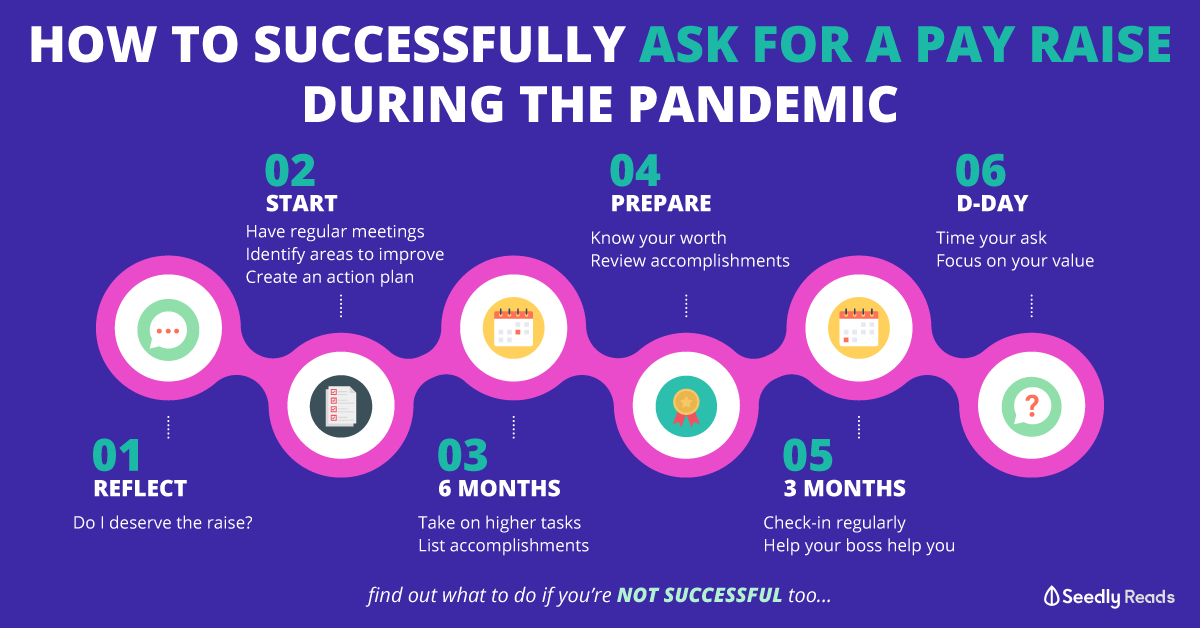How to Negotiate for a Pay Increase While Working From Home
By Dumb Little Man
January 10, 2024

For many employees, working from home full-time while their employer is located elsewhere may appear to be a perfect job. However, remote staff who report to a superior may struggle to have difficult talks with him or her, such as requesting a pay raise.
Requesting a raise is not simple. It can be a difficult and complicated procedure. It may be unpleasant. You might also be concerned that if your manager doesn't grant you a pay increase, you'll find yourself in an uncomfortable position. These are serious considerations, especially when working remotely where you're literally more disconnected from your employer.
So here's a compilation of tips to manage this situation and achieve the outcome you desire.
1. Evaluate your company's situation

Take how much money you make into perspective by comparing it to the firm for which you are working. If your firm is doing well, that's fantastic. Perhaps it just won a large contract, received a major investment, or achieved a significant goal. If so, it may be the appropriate time to request a raise.
2. Show your worth

Prove to your employer that you are worthy of the additional financial reward. To do this, provide examples of how you have made a difference with your job duties and offer further evidence as to why you deserve more.
How can your background and contribution justify a wage that differs from the median? Consider all of the things you've done for both your present and past employers.
3. Be reasonable

When negotiating for better pay, consider what increment makes sense for both parties before making any requests. Determine what is most reasonable and appropriate for the company and your current position. Use a pay raise calculator to make the comparison between current and after the increment pay, be it a percentage increase, flat rate increment, or a new pay rate.
4. Give it time

Factor in the length of time you've been with the organization when considering when to negotiate. Although there are always exceptions, most employers may not be willing to give a significant pay raise to an employee unless they have been with the firm for years.
5. Timing in general

Even if you're not in the office with your employer every day, there are certain situations when it is appropriate to request a raise – and others when it isn't. Early in the morning, or on a Monday, or immediately following a meeting with their own executives might not receive you as favorable an answer as you desire. These are just some things to consider.
6. How to request a meeting

When it comes to scheduling a meeting to discuss the raise, email is an acceptable option. A phone call may be more beneficial. If your employer uses an online calendar and you arrange meetings that way, follow suit. Just make sure they know what you want to talk about ahead of time so they can prepare for it. This gives them time to prepare and reflect, which is much better than catching them off guard.
7. Perfect your pitch

A decent pitch requires practice. The first time you communicate your reasons for wanting a bigger salary may not be perfect. You might want to try having someone else play the part of your manager. Alternatively, you may use your phone to record your voice and body language. Then imagine how your opponent will respond. This may seem like a lot of work, but it's definitely worth it if it means having a well-practiced, clear pitch.
8. Compromise
If your boss appears to be less inclined to agree with your claims, offer suggestions as a way of creating dialogue and keep the conversation open. Ask them what they think is a realistic option for you. This will help work out a compromise between the two of you.
Consider a broader range of benefits and choices in addition to a pay raise when attempting to find common ground. If your employer is less eager to keep or raise your salary, have alternative options on hand.
9. Dealing with Negativity

These methods are not guaranteed to work, and you may or may not receive the raise you want. You might leave with more benefits or nothing at all. That's OK.
It doesn't suggest that you are not deserving of the raise you requested. It might indicate that your approach needs to be worked on, that your firm's finances are mismatched with your demand, or that your manager does not have a clear view of your work yet.
If your employer wants to decrease your payor refuses to give you a raise, don't assume you have to take it. Emphasize your value as a worker, common goals, and the demonstrated benefits—both to employers and employees—of remote work. Don't give up, and never underestimate your significance as an employee.
Dumb Little Man
At Dumb Little Man, we strive to provide quality content with accuracy for our readers. We bring you the most up-to-date news and our articles are fact-checked before publishing.


